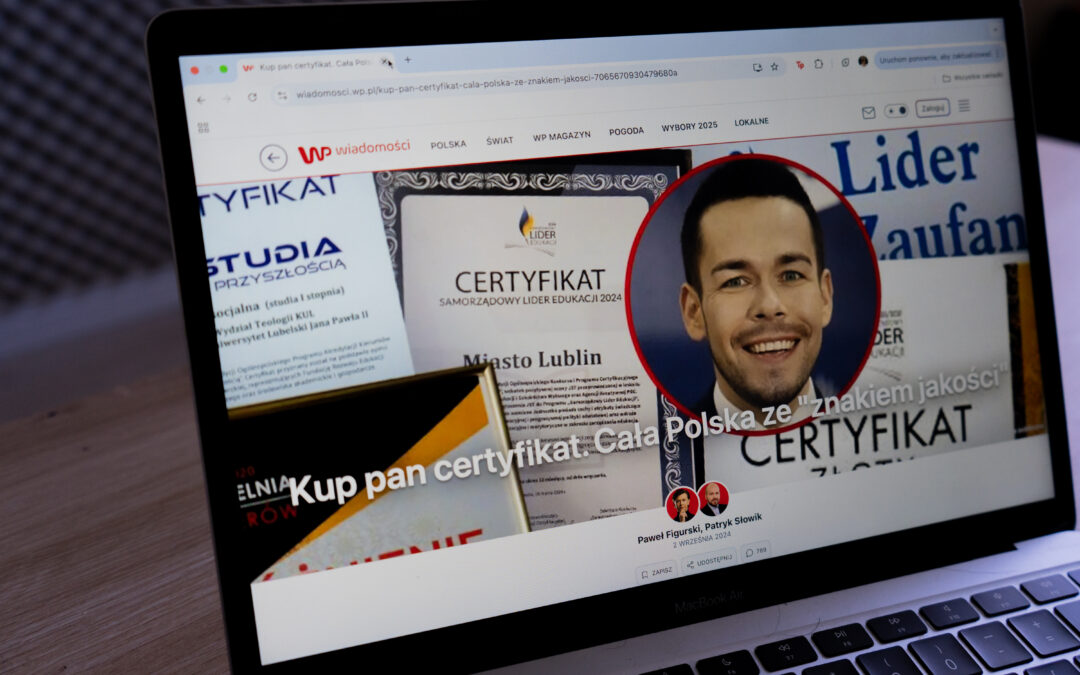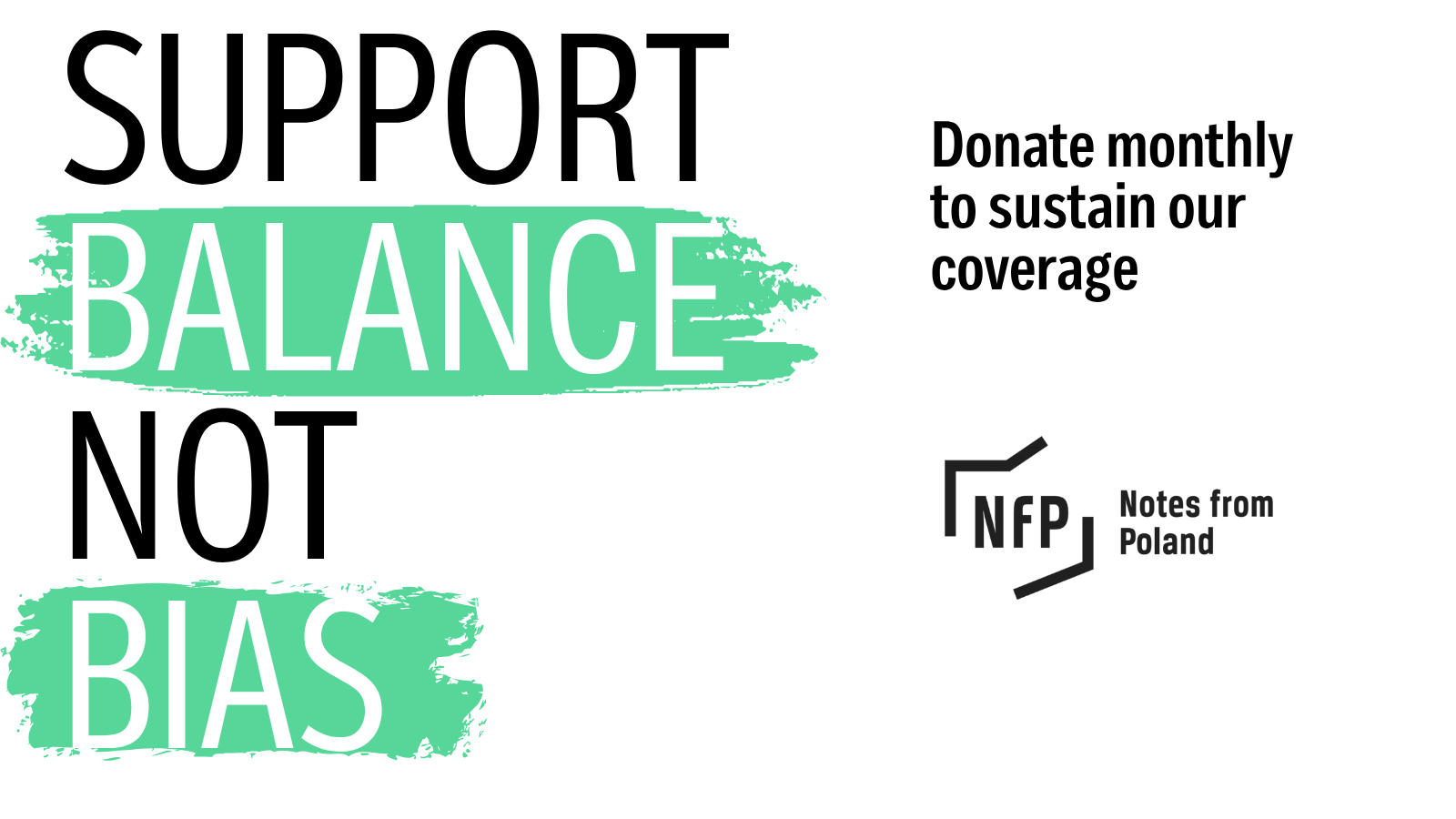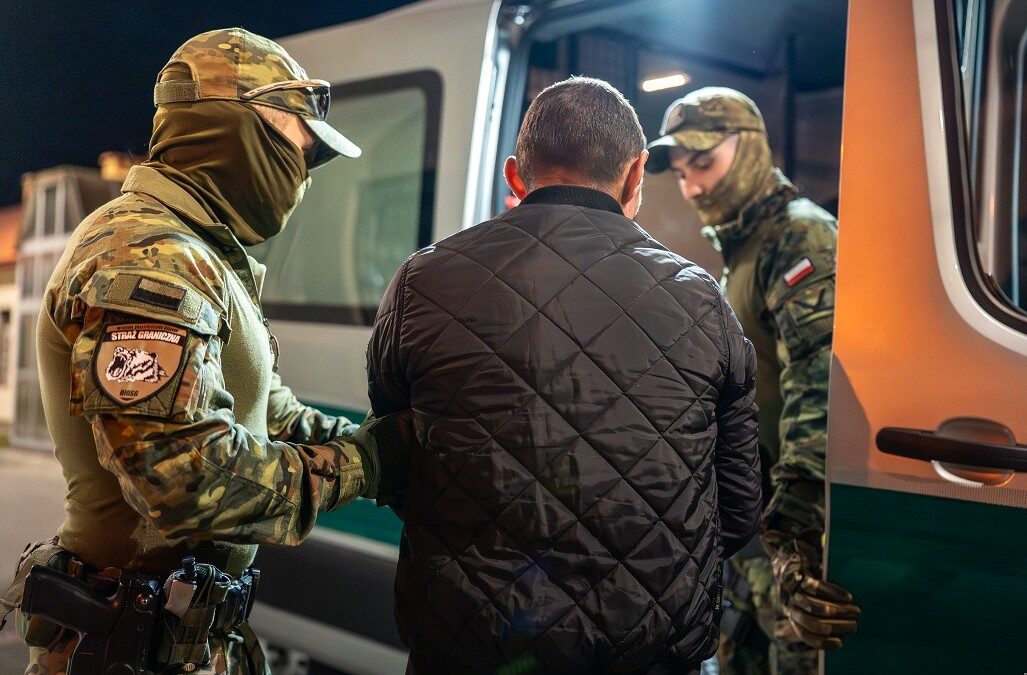Keep our news free from ads and paywalls by making a donation to support our work!

Notes from Poland is run by a small editorial team and is published by an independent, non-profit foundation that is funded through donations from our readers. We cannot do what we do without your support.
A court has fined two journalists from one of Poland’s largest online news outlets for publishing statements sent by email to them from a public media official without first seeking his authorisation to use them.
Under Poland’s press law, journalists must offer their interviewees the right to check and authorise any quotes before they are published. However, in this case, the reporters argued that no authorisation was required because the statement was published “word for word” as it appeared in the email.
However, in a decision that has been criticised by rights groups and other journalists, Warsaw’s district court has now ordered them each to pay a fine of 1,000 złoty (€235). They plan to challenge the judgement.
➡ @PatrykSlowik i @p_figurski zostali skazani w trybie nakazowym na grzywny w wysokości 1 tys. zł każdy, bo zacytowali odpowiedzi otrzymane mailem „bez umożliwienia wykonania autoryzacji”.
– Zacytowaliśmy słowo w słowo – mówi Słowik ⬇ https://t.co/dWi4fmcrpP
— Magazyn Press (@PressRedakcja) November 5, 2025
The case concerns Michał Kaczmarczyk, a member of the programme council of Polish Radio and the Polish Press Agency (PAP), two state-owned media outlets. He was the subject of two articles by journalists Patryk Słowik and Paweł Figurski of news website Wirtualna Polska.
In the first article, the journalists alleged that people linked to Kaczmarczyk, who was then rector of a private college in the town of Sosnowiec, were selling certifications to virtually anyone willing to pay for them.
The second article questioned how Kaczmarczyk had come to be appointed to the programme boards of Polskia Radio and PAP, noting his close association with a politician from Prime Minister Donald Tusk’s party who is head of the National Media Council, a state body that oversees public media.
While preparing the first article last year, the journalists received comments from Kaczmarczyk by email and included excerpts in their report. However, last month Słowik and Figurski reported that Kaczmarczyk had called the police on them over the issue and that the police had taken the matter to court.
Now the court in Warsaw has found that Słowik and Figurski failed to obtain the required authorisation from Kaczmarczyk before publishing his statements and has fined them, reports Press magazine.
However, Słowik argues that, in this case, there was no legal obligation to seek authorisation. “We didn’t change or manipulate his statement. We quoted it word for word,” he told Press.
He added that they did not publish everything Kaczmarczyk sent them because he wrote about things they had not asked about.
Sprawa wyroku (nakazowego) dla @p_figurski i mnie za brak autoryzacji wypowiedzi pisemnej połączyła od @DorotaKania2 po @czuchnowskiw. Dziękuję wszystkim wspierającym.
Szczerze wierzę w to, że walczę w tej sprawie o interes dziennikarzy, a nie swój. Zapłacenie 1000 zł byłoby…— Patryk Słowik (@PatrykSlowik) November 5, 2025
Lawyer Jerzy Jurek explained to Press that the verdict was issued as a penalty order, a type of ruling handed down without the parties’ participation in cases considered “straightforward”.
“A penalty order is essentially a court’s proposal for a sentence, issued solely based on the indictment and without a formal hearing of evidence,” Jurek said. He added that the recipient has seven days to file an objection after receiving the court’s notice. Słowik says they now plan to take up that option.
“Paying 1,000 złoty would be faster, simpler and cheaper than spending months arguing in court that there is no need for authorisation of statements someone knowingly sends to journalists,” he said. “[But] I sincerely believe that I’m fighting for the interests of journalists in this case.”
Poland’s culture ministry has presented a draft media bill that it says “will ensure the depoliticisation of public media”.
However, the opposition has called the plans a “sham” that will simply "entrench" the government's power over state broadcastershttps://t.co/pSWEsPG5vu
— Notes from Poland 🇵🇱 (@notesfrompoland) October 31, 2025
The journalists’ position was supported by, among others, the Helsinki Foundation for Human Rights (HFHR), which argued that, when an interviewee provides a written statement and the journalist quotes it faithfully, authorisation is unnecessary.
“The purpose of authorisation is to ensure the truthfulness of the message and protect against distortion, while simultaneously respecting press freedom,” said HFHR lawyer Michalina Kowala.
Kaczmarczyk has also launched legal action against Wirtualna Polska itself as well as its editor-in-chief, Paweł Kapusta, over the website’s reporting on him. Last week, a hearing also began in another case he has brought against a local newspaper, Dziennik Zachodni, for its reporting on the certificates story.
In a statement issued to Press last month he said that he would not publicly comment on court proceedings in which he was a witness or wronged party.
Poland's public media “carried out systematic repressive actions against activists, NGOs and civil society” during the rule of the former PiS government, a report commissioned by the new government has found https://t.co/S2MO9KGssC
— Notes from Poland 🇵🇱 (@notesfrompoland) September 26, 2025

Notes from Poland is run by a small editorial team and published by an independent, non-profit foundation that is funded through donations from our readers. We cannot do what we do without your support.
Main image credit: Alicja Ptak

Alicja Ptak is deputy editor-in-chief of Notes from Poland and a multimedia journalist. She has written for Clean Energy Wire and The Times, and she hosts her own podcast, The Warsaw Wire, on Poland’s economy and energy sector. She previously worked for Reuters.




















